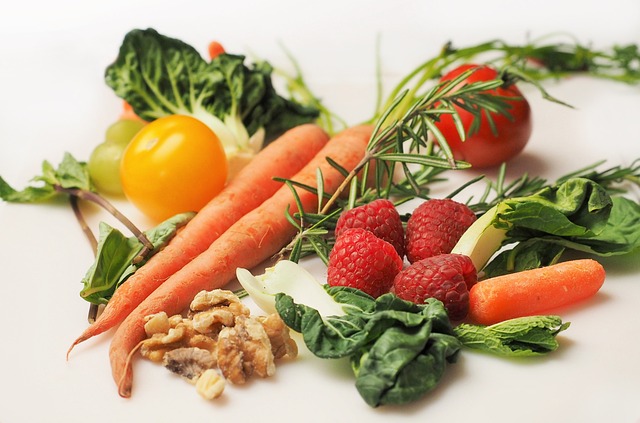Introduction
Organic gardening is becoming increasingly popular as people recognize the importance of growing their own food and reducing their environmental impact. By using organic gardening methods, individuals can produce fresh and nutritious fruits, vegetables, and herbs while minimizing exposure to harmful chemicals. One crucial aspect of organic gardening is understanding the significance of soil health. Proper soil management practices lead to healthier plants, improved crop yields, and greater ecological sustainability. In this article, we will explore the concept of healthy soil and its importance in organic gardening. We will also discuss the benefits of healthy soil, how to test and improve soil health, the use of organic soil amendments, conservation practices to protect the soil, and the dangers of chemical fertilizers. Finally, we will emphasize why healthy soil is crucial for successful organic gardening and offer practical tips for aspiring gardeners.
What is organic gardening?
Organic gardening refers to the practice of growing plants without the use of synthetic fertilizers, pesticides, or genetically modified organisms (GMOs). It emphasizes natural and sustainable methods, such as composting, crop rotation, and the use of organic soil amendments. Organic gardening promotes the health of both plants and the environment by nurturing soil health and biodiversity.
The importance of soil in organic gardening
The soil plays a crucial role in organic gardening. It serves as the foundation for plant growth, providing essential nutrients and water. Additionally, healthy soil promotes the growth of beneficial microorganisms that aid in nutrient cycling and pest control. By focusing on soil health, organic gardeners can create a sustainable growing environment that supports thriving plants and minimizes the need for synthetic fertilizers or pesticides. Organic gardening practices prioritize the maintenance and improvement of soil quality, ensuring long-term success and environmental stewardship.
What is Healthy Soil?
Healthy soil refers to the presence of a balanced and nutrient-rich environment that is conducive to the growth and development of plants. It contains an optimal combination of organic matter, minerals, water, and air, which are essential for sustaining plant life. Healthy soil supports a thriving community of microorganisms and beneficial organisms that contribute to its fertility and overall health.
Definition and components of healthy soil
Healthy soil refers to soil that possesses the necessary balance of physical, chemical, and biological properties required for optimal plant growth. It is characterized by its ability to retain moisture, maintain good drainage, and provide essential nutrients to plants. Components such as organic matter, minerals, air, water, and a diverse community of microorganisms are essential for soil health.
The role of microorganisms in soil health
Microorganisms play a crucial role in soil health by breaking down organic matter, releasing nutrients, and improving soil structure. Bacteria, fungi, and other microorganisms help to decompose dead plants and animals, transforming them into nutrients that can be absorbed by plants. Additionally, they help to create a crumbly soil structure that allows for better water drainage and root penetration. These microorganisms also suppress harmful pathogens and pests, contributing to a healthy and balanced ecosystem within the soil.
Benefits of Healthy Soil in Organic Gardening
Healthy soil plays a crucial role in organic gardening, providing numerous benefits for plants and the environment. Firstly, it improves plant growth and vitality by providing essential nutrients and moisture. Secondly, it increases resistance to pests and diseases, reducing the need for harmful pesticides. By fostering a healthy ecosystem underground, organic gardeners can cultivate thriving plants using sustainable and environmentally-friendly methods.
Improves plant growth and vitality
Improving plant growth and vitality is one of the key benefits of healthy soil in organic gardening. Healthy soil provides plants with essential nutrients, such as nitrogen, phosphorus, and potassium, that are necessary for their optimal growth and development. These nutrients are made available to plants through the activities of beneficial microorganisms present in the soil. Additionally, healthy soil promotes better water retention and aeration, allowing plants to take up water and oxygen more effectively. As a result, plants grown in healthy soil tend to have stronger root systems, larger leaves, and increased yields. By providing the necessary nourishment and support, healthy soil helps plants thrive and reach their full potential in organic gardens.
Increases resistance to pests and diseases
Healthy soil plays a crucial role in increasing the resistance of plants to pests and diseases. When soil is rich in organic matter and beneficial microorganisms, it creates a balanced ecosystem that naturally repels pests and prevents the spread of diseases. This natural defense mechanism reduces the need for chemical pesticides and fungicides, making organic gardening a safer and more sustainable option. By prioritizing soil health, gardeners can create an environment where plants are better equipped to withstand the challenges posed by various pests and diseases.
How to Test Your Soil
To ensure successful organic gardening, it is crucial to understand the composition and quality of your soil. Testing your soil helps determine its pH levels and nutrient content, allowing you to make informed decisions about fertilizers and amendments. Various methods can be used for soil testing, including DIY kits, sending samples to a professional lab, or using digital soil testing devices. These tests measure factors like pH, nutrient levels, organic matter content, and soil texture. Interpreting the test results will guide you in addressing any deficiencies or imbalances in your soil, promoting optimal plant growth and overall health.
Soil testing methods
Soil testing is a crucial step in determining the health of your soil for organic gardening. There are various methods available to test soil, including laboratory analysis, DIY test kits, and professional soil testing services. These tests typically measure key factors such as pH levels, nutrient content, organic matter content, and the presence of contaminants. By understanding the composition of your soil, you can make informed decisions about the necessary amendments and improvements needed to create an optimal environment for plant growth.
Interpretation of soil test results
Interpretation of soil test results is a crucial step in understanding the fertility and composition of your soil. Soil testing provides valuable information about nutrient levels, pH balance, and organic matter content. By analyzing the results, you can determine which nutrients may be lacking or excessive and make informed decisions about fertilizer and amendment application. Understanding the interpretation of soil test results is essential for maintaining a healthy and productive garden.
How to Improve Soil Health
To improve soil health in organic gardening, there are several practices that can be implemented. One effective method is composting and nutrient cycling, which involves adding organic matter such as kitchen scraps, leaves, and grass clippings to the soil to enhance its fertility. Another technique is the use of cover crops and crop rotation, which helps prevent soil erosion and replenishes nutrients naturally. By adopting these practices, organic gardeners can promote a healthy and balanced soil ecosystem for optimal plant growth and sustainability.
Composting and nutrient cycling
Composting is a vital practice in organic gardening that involves the decomposition of organic materials to create nutrient-rich compost. Nutrient cycling, on the other hand, refers to the natural process where nutrients from organic matter are recycled back into the soil. When we compost, we take advantage of this natural cycle by providing the necessary conditions for microorganisms to break down organic matter into nutrient-rich compost. This compost can then be incorporated into the soil, replenishing it with essential nutrients and improving its overall fertility. Composting not only reduces waste but also helps cultivate healthy soil that is vital for successful organic gardening.
Cover crops and crop rotation
Cover crops and crop rotation are two important practices in organic gardening that contribute to maintaining healthy soil. Cover crops, also known as green manure, are planted between growing seasons to protect and enrich the soil. They help prevent erosion, suppress weeds, and add organic matter when they are tilled back into the soil. Crop rotation involves planting different crops in a specific sequence to reduce the risk of soil-borne diseases and pests. By rotating crops, gardeners can break pest life cycles and replenish soil nutrients naturally. These practices promote soil health, improve fertility, and enhance overall plant growth and productivity in a sustainable manner.
Organic Soil Amendments
Organic soil amendments play a crucial role in improving the health and fertility of the soil in organic gardening. These amendments are derived from natural sources such as compost, manure, bone meal, and seaweed. They enhance the soil structure, increase nutrient availability, and promote beneficial microbial activity. By adding organic soil amendments, gardeners can ensure that their plants receive a steady supply of essential nutrients without relying on synthetic fertilizers or harmful chemicals. The application methods and recommended quantities may vary depending on the specific amendment being used, but it is important to follow guidelines provided by reputable sources or consult with experts in organic gardening.
Types of organic soil amendments
Types of organic soil amendments commonly used in organic gardening include compost, manure, bone meal, fish emulsion, and seaweed. These natural materials are rich in nutrients and provide essential elements for plant growth. They enhance soil fertility, structure, and water retention, promoting healthy plant development.
Application methods and recommended quantities
When it comes to applying organic soil amendments, there are various methods you can choose from. One common method is by mixing the organic matter into the soil before planting. This allows for even distribution of nutrients throughout the soil. Another method is top-dressing, where you apply the amendments on the surface of the soil and gently work them into the top layer. The quantity of organic soil amendments required will depend on factors such as the type of amendment, the size of your garden, and the specific nutrient needs of your plants. It is important to follow recommended guidelines and dosage instructions provided by manufacturers or gardening experts to ensure proper application and avoid overuse.
Soil Conservation Practices
Soil conservation practices are essential for maintaining healthy soil and minimizing erosion and nutrient loss. These practices involve a range of techniques that help protect the soil from degradation, preserve its fertility, and promote sustainable gardening practices. By implementing soil conservation practices, gardeners can ensure the long-term health and productivity of their organic gardens.
One effective method of soil conservation is reducing erosion. Erosion occurs when wind or water carries away the top layer of soil, which contains essential nutrients for plants. To combat this issue, gardeners can implement measures like contour plowing, where furrows are created along the slope to reduce runoff and prevent soil erosion. Additionally, terracing can be utilized on steep slopes to slow down water flow and allow it to infiltrate into the ground.
Another important aspect of soil conservation is reducing nutrient loss. Nutrients are vital for plant growth, but they can easily be washed away by excessive irrigation or heavy rainfall. Gardeners can implement strategies such as using mulch to retain moisture in the soil and prevent nutrient leaching. Cover crops like legumes can also help fix nitrogen in the soil and reduce the need for chemical fertilizers.
Water conservation techniques also play a significant role in soil conservation practices. By implementing measures like drip irrigation or installing rain barrels to collect rainwater, gardeners can reduce water usage while ensuring that plants receive adequate moisture. This not only conserves water resources but also helps maintain a healthy balance of moisture in the soil, promoting ideal growing conditions for plants.
Overall, adopting soil conservation practices is crucial for organic gardening as they help protect against erosion, retain essential nutrients, conserve water resources, and promote sustainable gardening methods. By taking steps to preserve and enhance the health of their soil, gardeners can create thriving organic gardens that yield nutritious crops while caring for the environment.
Word Count: 277
Reducing erosion and nutrient loss
Reducing erosion and nutrient loss is essential for maintaining healthy soil in organic gardening. Erosion can lead to the loss of topsoil, which is rich in nutrients necessary for plant growth. Implementing soil conservation practices such as terracing, contour plowing, and windbreaks can help prevent erosion by minimizing the impact of rainfall and wind. Additionally, planting cover crops and practicing crop rotation can help minimize nutrient runoff and maintain soil fertility. By adopting these strategies, organic gardeners can ensure the long-term health and productivity of their soil.
Water conservation techniques
Water is a precious resource, especially in today’s world where water scarcity is becoming increasingly common. In organic gardening, implementing water conservation techniques is not only essential for sustainable practices but also for the overall health and productivity of your garden. By conserving water, you can help minimize waste and promote efficient use of this vital resource.
One effective water conservation technique is the use of mulch. Applying a layer of organic mulch around your plants helps retain moisture in the soil by reducing evaporation. Mulch also acts as a barrier to weed growth, which can compete with your plants for water. Organic materials such as straw, wood chips, or compost make excellent mulch options.
Another technique is drip irrigation. Unlike traditional sprinkler systems that spray water into the air, drip irrigation delivers water directly to the base of your plants through a network of tubes or pipes with small holes or emitters. This method provides targeted watering, minimizing water loss from evaporation and ensuring that plants receive only the amount of water they need.
Capturing and utilizing rainwater is another effective approach to conserve water in organic gardening. Installing rain barrels or cisterns allows you to collect rainwater from roofs or other structures and use it to irrigate your garden during dry periods. This not only reduces your reliance on municipal water sources but also helps prevent stormwater runoff that can contribute to pollution.
Implementing proper watering practices can also contribute to water conservation. Watering in the early morning or late evening when temperatures are cooler helps minimize evaporation. Additionally, watering deeply and less frequently encourages plants to develop deeper root systems, making them more resilient and better able to access moisture below the surface.
By incorporating these water conservation techniques into your organic gardening practices, you can minimize water waste and ensure that your plants receive adequate hydration while being mindful of environmental sustainability.
The Dangers of Using Chemical Fertilizers
Using chemical fertilizers can have detrimental effects on soil health and the environment. These fertilizers contain synthetic nutrients that are quickly absorbed by plants, leaving the soil depleted of essential minerals over time. Moreover, the excessive use of chemical fertilizers can contribute to water pollution, as they can leach into streams, rivers, and groundwater. This can lead to harmful algal blooms and disruptions in aquatic ecosystems. Additionally, the production of chemical fertilizers contributes to greenhouse gas emissions and fossil fuel consumption. Therefore, it is crucial to explore organic alternatives that promote sustainable gardening practices and minimize these risks.
Negative effects on soil health and the environment
The use of chemical fertilizers in gardening poses significant risks to soil health and the environment. These synthetic fertilizers contain high levels of harmful chemicals, such as nitrogen, phosphorus, and potassium, which can contribute to soil degradation and water pollution. When these chemicals leach into the soil, they disrupt the natural balance and beneficial microbial activity required for sustainable plant growth. Additionally, they can contaminate groundwater sources and contribute to the formation of harmful algal blooms in water bodies. The excessive use of chemical fertilizers also contributes to greenhouse gas emissions, contributing to climate change. It is crucial to recognize the negative impacts of chemical fertilizers and explore organic alternatives for a healthier environment.
Organic alternatives
When it comes to gardening, there are organic alternatives to chemical fertilizers and pesticides that can help maintain soil health and protect the environment. Organic fertilizers, such as compost, manure, and fish emulsion, provide essential nutrients to plants without the harmful effects of synthetic chemicals. These natural options enrich the soil with organic matter and support the growth of beneficial microorganisms. In addition, there are various organic pest control methods, including trapping, companion planting, and using natural predators like ladybugs or praying mantises. By choosing these organic alternatives, gardeners can promote a healthier ecosystem and contribute to sustainable gardening practices.
Conclusion
In conclusion, healthy soil is the foundation of successful organic gardening. By understanding the importance of soil health and implementing practices such as composting, cover cropping, and soil testing, gardeners can ensure the vitality and productivity of their plants. By avoiding chemical fertilizers and adopting organic alternatives, we can protect our environment and contribute to a sustainable future. With the right knowledge and techniques, anyone can enjoy the benefits of growing their own food through organic gardening.
The importance of healthy soil in organic gardening
Healthy soil is the foundation of successful organic gardening. It provides essential nutrients, holds moisture, and supports beneficial microorganisms that contribute to plant growth and vitality. Without healthy soil, plants may struggle to thrive and be more susceptible to pests and diseases. Organic gardeners prioritize soil health as it ensures sustainable and environmentally-friendly gardening practices.
Final thoughts and practical tips.
After exploring the importance of organic gardening and healthy soil, it is evident that nurturing the soil is key to successful gardening. By focusing on composting, cover cropping, and water conservation techniques, gardeners can improve soil health and reduce reliance on chemical fertilizers. With knowledge of soil testing methods and organic amendments, gardeners can provide optimal conditions for plant growth while minimizing environmental impact. Embracing organic gardening practices not only benefits individuals by providing fresh and healthy food but also contributes to a sustainable and environmentally friendly future.





